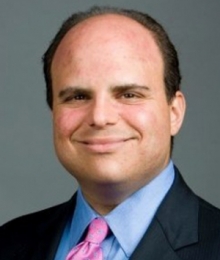S. Food Law and Policy
Course Information
- Course Number
- L8795
- Curriculum Level
- Upperclass
- Areas of Study
- Administrative Law and Public Policy, Civil Procedure, Litigation, and Dispute Resolution, Commercial Law and Transactions, Legal Profession and Professional Responsibility
- Type
- Seminar
Section 001 Information
Section Description
New for Spring 2026. Flaming Hot Cheetos. Powdered alcohol. Raw Milk. Caffeinated lemonade. Sugary sodas. Are any of these foods so unsafe that they should be illegal? Carry a warning label? Restricted to who can buy them? And, who should decide? From the current FDA’s focus on “ultra-processed ingredients” in our food supply as part of the “Make America Healthy Again” (MAHA) movement, to state-wide soda taxes, to criminal liability for foodborne illness, to laws and responsibility for combatting food insecurity, to competition as an engine of food law, these are just some of the topics of lively debate you can expect in this Food Law & Policy seminar.
On a deeper level, the class will examine themes of blame and responsibility, and the broader societal debate over whether individuals, corporations, or government entities bear responsibility for healthy food preferences, a safe and sustainable food supply, alcohol and calorie intake, competition issues and distribution structures in regulated industries. The class will consider how food policy in the United States is not only fragmented but often self-contradictory. The seminar will also contend with law and policy questions that plague many other areas of law: How much regulation is sensible and how much is too much and burdensome? Who should pay when someone is injured? When the federal government is slow to act, should state governments step in, and should courts stay cases that cover topics of federal agency concern? What is the impact when states involve themselves in areas of federal concern? How do you compare and contrast the competing goals of encouraging business growth and investment while protecting innovation and promoting free competition? And are state efforts at regulation a positive expression of the great laboratory of federalism and an appropriate exercise of their police powers to protect the interests of their citizens or are they a burdensome patchwork of contradictory laws?
Beyond food law, use this class to learn from two practitioners about: practical strategies for success in law firm life; advising clients when the laws and regulations are gray; comporting yourself with clients and colleagues; building your network; exploring different versions of a successful career with a Columbia law degree, including public service, in-house practice, and non-profit work; and much more.
Students will have an opportunity to practice presentation skills with a weekly rotation of presentations on law and policy developments in the news. Students will have an opportunity to gain practical experience interacting with a client in a mock counseling exercise and to apply the themes of the class to develop a concrete policy proposal to resolve a food or beverage alcohol problem. In addition to in class engagement, each student will also be responsible for a final researched paper on a food law and policy topic.
Note: This course will be focused primarily on the manufacture and regulation of finished food and beverages, with only modest discussion of US agriculture. For a deeper dive on the latter, see S. Food Systems and US Environmental Law (L8421).
- School Year & Semester
- Spring 2026
- Points
- 2
- Method of Evaluation
- Paper
- J.D Writing Credit?
- Minor (automatic)
- Major (only upon consultation)
- Writing Credit Note
- Major Writing Credit Upon Consultation.
Learning Outcomes
- Primary
-
- At the end of the course, students will have gained a broad overview of the complex and constantly evolving laws and policies governing food and beverage alcohol in the United States.
- At the end of the course, students will have engaged in active discussion and learning from your peers, especially when perspectives diverge.
- At the end of the course, students will have practiced presentation skills with “food/alcohol law or policy in the news” presentations.
- At the end of the course, students will have practiced practical skills by engaging with a client in a mock counseling exercise.
- At the end of the course, students will have deeply researched and analyzed a narrower topic of personal interest with a 20 page research paper. Scheduled milestones during the semester provide early feedback opportunities, plus students may elect to submit a first draft for optional additional feedback.
- At the end of the course, students will have applied the themes of the class to propose and defend a new US law or policy to solve a food or alcohol related issue affecting people today.
- At the end of the course, students will have received advice from practicing attorneys about the practice of law in real life, whether you plan to be in private practice, in house, public service, or non-profit.
Course Limitations
- Instructor Pre-requisites
- None
- Instructor Co-Requisites
- None
- Requires Permission
- No
- Recommended Courses
- None
- Other Limitations
- None

